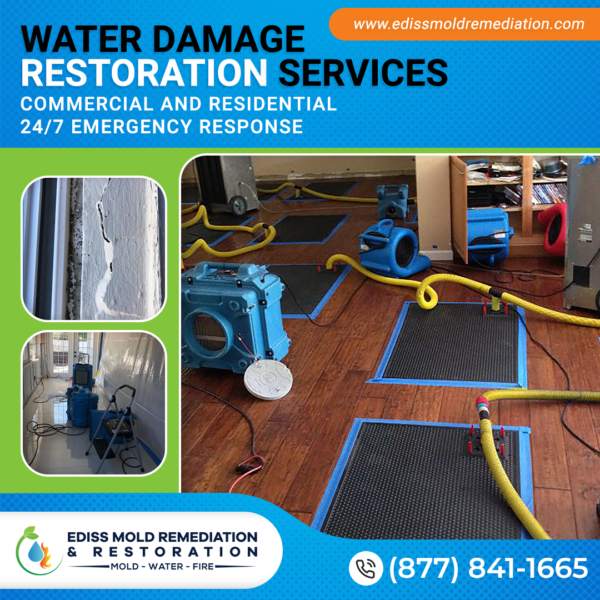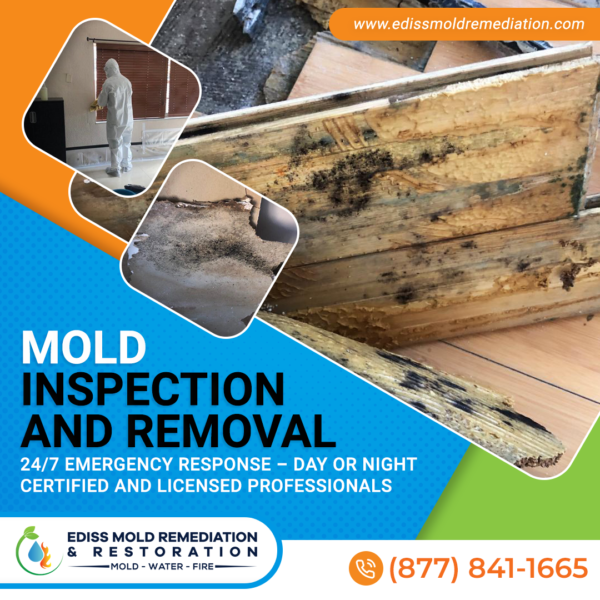Signs of Mold: Symptoms of Mold Exposure

Symptoms of Mold Exposure: A scratchy throat can mean all kinds of things from something as mild as allergies to something as serious as Covid. But what happens when you have a scratchy throat every day? Do your symptoms disappear when you leave the house for long periods?
Your problem may not be in you but rather in your home. Mold in your home can cause a myriad of problems from damaging your home to making you and your home occupants sick. But how do you know if you have mold in your home?
By the time you’ve finished reading this article, you will recognize signs of mold in your home or office and know when to call a mold removal service.
Smells
If you have mold in your home, there’s a real possibility you will be able to smell it. Mold smells stale and musty, and it can permeate your entire house. Thus, that “old house smell” may be one of the signs of mold in your home.
Different types of mold will produce different smells, but ultimately, they all smell damp. If you notice the damp, musty smell without seeing an obvious source like organic material in the garbage or a dirty dishcloth, then you probably have mold somewhere in the house and need a mold removal service.
Physical Symptoms
Mold allergies and mold sickness can have both short-term and long-term effects. You’ll first notice problems when you have symptoms similar to allergies. But the symptoms can progress to far more serious problems.
Here are common symptoms of mold illness:
- Nasal and sinus congestion
- Coughing and wheezing
- Sneezing
- Shortness of breath
- Red and watery eyes
- Chest tightness
- Itchy nose, eyes, and throat
- Dry, scaly skin
You may suspect mold growth if you notice these symptoms appearing or worsening when you’re indoors as opposed to when you’re outdoors and exposed to outdoor mold and pollen. Airborne irritants can make allergy and asthma symptoms even worse, especially when you’re in closets, bathrooms, basements, and other areas where humidity is high in your house.
Mold can grow in AC closets, making it especially dangerous. The unit will then pump the spores throughout the home.
Pests can also cause these breathing problems. So double-check to make sure you don’t have a mouse or cockroach problem that could cause these issues.
If you think you have mold, call in a mold remediation expert who is experienced in black mold removal.
You also may experience chronic fatigue and headaches in addition to breathing and allergy symptoms. Specific types of mold called mycotoxins contribute to sick building syndrome, an illness specific to residents, and mold exposure.
Sick building syndrome, or SBS, looks mostly like chronic fatigue and constant headaches. Victims of SBS have a difficult time functioning on a day-to-day basis because of their condition, and mold is the main culprit. Individuals with SBS will also experience immune system side effects, where their bodies basically turn on them and they keep getting sick.
Visual Signs
In addition to physical symptoms, you will notice visual signs of mold existence. Mold needs ideal conditions to grow. It must have dampness as well as a warm environment.
So if you’ve ever had water damage, start looking in that location for toxic mold and black mold.
Mold spores can also grow in the ductwork. This is especially dangerous since your air movement system can then pump mold spores throughout your home and building. Here are the smoking guns to look for when you’re searching for the source of your mold problem:
- Plumbing problems
- Building maintenance problems
- Leaky faucet
- Leaky pipes
- Poorly ventilated basements, kitchens, and bathrooms
- Rain or snow intrusion
- Condensation from your HVAC systems
In addition to these sources, keep an eye out for dark spots on ceilings and walls. These indicate a leak and a breeding ground for mold. Look for gray, white, blue, yellow, or green areas. These different colors indicate mold and not just a wet spot.
If you suspect mold, dab the area with some diluted bleach. If the area changes color after a few minutes, you most likely have a mold problem.
Peeling wallpaper also indicates mold growth. Wallpaper cannot stick to damp walls with mold growing on them. So the paper will just randomly begin to fall off the wall.
As weather changes, condensation will form on the back of the paper. This moisture will loosen the paper, and mold will begin to grow.
Peeling paper can happen if you have bad wallpaper, so do not automatically assume you have a mold problem if your paper begins falling off the wall. Consider all of your possibilities.
Pet Behavior :
Even pets feel sick because of mold
Pets are also sensitive to mold. They will begin to behave in odd ways when they’re exposed to mold. Dogs will begin to sniff around the areas where you have mold in a somewhat obnoxious way.
Your dog may even begin to try to eat the mold. If a pet ingests mold, its immune system will react to it. You will see them become lethargic and have some of the following symptoms:
- Coughing
- Labored breathing
- Wheezing
- Vomiting
- Decreased appetite
Some pets will begin scratching themselves because of skin sensitivity to the mold. You’ll notice inflamed or irritated skin and even hair loss.
Don’t Ignore Signs of Mold
Feeling sick because of mold?
Mold can cause serious health problems and building problems. If you let the mold go, it will weaken structures, softening walls and wood. It also will make building and home occupants seriously sick.
Plus, your house will smell pretty bad. It will have a constant musty odor, and the air will be damp and uncomfortable.
You may be tempted to try to just scrub the mold away on your own. Avoid this. You could become even sicker from close exposure to the spores.
You need a mold removal company to remove mold from AC ducts and other tricky spots.
Don’t ignore the signs of mold. If you suspect mold in your home, you need to call a mold removal expert. They will inspect your home and evaluate its condition before they lay out a plan of action.
Are you looking for a mold removal company? If so, contact us. Our mold remediation experts will help you restore your home and home occupants to good health once



